I went "undercover" at Whole Foods, and this is what I discovered.
"One important lesson I learned working at Whole Foods was just how deep our prejudices can go and how wrong our perceptions can be. The only way to really understand something is to live it."
One-time or recurring donations can be made at Ko-Fi
You can listen to me read this essay here:
I’m working on an essay titled “A Reminder that Actions Speak Louder than Words”. I thought before I publish it, I should let you all know (finally) what I did last summer and how far I will go to understand the topics I am writing about.
For 6 months, from May 2023 to Thanksgiving Day, I worked “undercover”, 40 hours a week, at a Whole Foods in Phoenix, Arizona. During that time, I was still writing my essays, getting up at 4 am to do so, still giving interviews, sometimes getting up at 2 am for interviews in Ireland, for example, and I was still exercising because it’s one of the best ways I know of staying sane.
So why did I go undercover at Whole Foods?
I use the word undercover loosely. When I started working there, I thought back to when I was in Middle School, pretending I was a spy. Back then, girls had to take home economics and sewing. I hated it. Especially sewing. I was so bad at it that I sewed my final project, an orange dress with white polka dots, inside out, not realizing what I’d done until the end. I was hopeless.
To survive those classes, I told myself I wasn’t some pathetic girl who had to learn to sew. No. I was a spy and the world depended on the information I was gathering. I don’t remember what it was, but it was probably something like my teacher was a Soviet assassin who was going to kill the president or something like that. During class, I’d write a note to myself and leave it in a hidden spot before I left class. That way, I had something to look forward to when I returned. I’d pick up the note, pretending it was a response from my contact. Yes, I went to that kind of trouble to make school more interesting.
Working at Whole Foods, I looked back at that undercover experience so long ago and thought, yep, here I am again, undercover, gathering information for my writing!
If anyone would have told me a few months earlier that I’d be working at Whole Foods, telling myself such stories, I’d have told them they were the crazy ones. That March, I’d been on a plane to Costa Rica, looking forward to losing myself in the jungle, far from the insanity that was overtaking America.
Lake Arenal is stunningly beautiful and a great place to write. I’d already lived there previously, for two three-month stints, and I was excited to recreate my memories of looking out from my balcony at Arenal’s brooding volcano shrouded in mist, wild thunderstorms rolling across the sky in the afternoons, rain pounding on the tin roof as I furiously wrote on my computer.
I lasted about a month before I was on a plane heading back to Los Angeles.
Everything had changed since my days in Costa Rica before the pandemic. I had changed. My epiphany during Covid, while living in Egypt, had set me on a course of writing these essays, a type of writing quite different than the YA fantasy novels I’d been writing on previous visits. Hiding out in the jungle wasn’t what I needed to be doing right now. I needed to be back in the heart of the battle. Especially leading up to the 2024 elections. As I had been warning about, extremism was on the rise, and I was sure violence would once again take over. How could I write about it if I wasn’t there?
Returning to Los Angeles, I knew I couldn’t just fall back into my old habits, huddled over my computer. I felt the need to get out and see what was really going on. What were ordinary Americans thinking and feeling? Already, we’d been divided into two camps, the vaxxed and the unvaxxed. We’d been conditioned on social media to hate the other side. How was this influencing people’s interactions in the real world. What would happen if we lost all connection to one another, as I was warning about in my essays. Was it already too late, or was there a way to turn it all around?
I needed to practice what I preached. I was always telling other people to get off their devices and interact with people in the real world. I needed to do the same. At this stage in my writing, it was the only way I felt I could justify continuing to speak with authority.
I decided that the best way I could achieve my goal was to get a job. This was a scary prospect. I’d had very few experiences of working in a company for other people. I’d always worked for myself.
The minute I had turned 16, I’d wanted to earn money. I’d gotten a job at a dog parlor, washing dogs for a dollar a dog. That job taught me everything I needed to know about the dog-eat-dog corporate world.
People would drop off their Fifi’s and their Mimi’s with special instructions and I’d put them in a big tub and wash them, looking for fleas, dousing them, if necessary, in an awful-smelling chemical solution. Then I’d set them on a table with a rope around their necks and dry their hair. Sometimes, if I walked away for a second, the dogs jumped off the table, hanging themselves and I’d have to rush back to save them. The hair stylist was a large woman who reveled in her power and looked down her nose at everyone else. I suppose she had to be tough since she was surrounded by jealousy and resentment. Even in that little place, competition was fierce. At any moment, someone might gain the upper hand and unseat her as “top dog”.
I quit after two weeks. I learned right then that I never wanted to take part in that scramble over the bodies of others to reach the top of the ladder. For what? It seemed those who reached that pinnacle of success were rarely happy anyway. As a result, I’d always worked independently, creating my own opportunities instead of joining those pointless games.
But now, I decided if I was going to get the most out of this, I needed to work for the biggest, wokest company I could find.
I immediately thought of Amazon.
I had to admit Jeff Bezos’s idea of forming Amazon back in 1994 had been brilliant. He foresaw what most others did not: that online shopping would take over the world. Amazon’s goal, he said, was to be “customer obsessed”. And that’s what happened. Amazon made online shopping effortless, reliably dropping orders off exactly as promised and making it super easy to return them if they didn’t work out.
In an interesting interview with Lex Fridman, Jeff Bezos talks with great nostalgia about the summers he spent on his grandfather’s ranch where they did everything from make the needles, to fix a bulldozer to vaccinate the cows. Then when all the work was done, they’d watch Days of Our Lives, lying on the floor, and how funny it was that his grandfather was obsessed with that daytime soap opera.
Bezos created a company that is the anthesis of everything he learned from his grandfather on the farm. Instead of being self-sufficient, something Bezos clearly valued and credited with helping him achieve success, Amazon makes those who use it lazy and dependent.
More than any other customer service company, Amazon illustrates how profitable the pandemic turned out to be for billionaires and how disastrous for ordinary, working-class people.
Amazon’s profits soared a staggering 200% during the pandemic. Jeff Bezos made so much money in 2020, NPR noted “he could have given each of his 876,000 Amazon employees across the globe a $105,000 bonus and still walked away with the same outrageous fortune he had before the pandemic began”.
But he didn’t do that. Amazon might have been “customer obsessed” but it had little concern for its overworked and underpaid employees. In April 2021, CBS News reported that Amazon had apologized for denying it worked its employees so hard that they had to pee in water bottles.
The pandemic contributed to the ever-widening gap between the haves and the have nots. The middle class suffered. Small businesses closed and people became employed by megacompanies like Amazon.
During Covid, The Top 1% of Americans took $50 Trillion from the bottom 90%. Few benefited as much as Jeff Bezos.
Anand Giridharadas describes this new world in Winners Take All: The Elite Charade of Changing the World
“Here were a handful of companies thriving by serving as middlemen between people who wanted rides and people who offered them, people who wanted their Ikea furniture assembled and people who came over to install it, people who defrayed their costs by renting out a room and people who stayed there. It was no accident, Scholz believed, that these services had taken off at the historical moment that they had. An epic meltdown of the world financial system had cost millions of people their homes, jobs, and health insurance. And as the fallout from the crash spread, many of those cut loose had been drafted into joining a new American servant class. The precariousness at the bottom, which had shown few signs of improving several years after the meltdown, had become the fodder for a bounty of services for the affluent—and, Scholz noted, for the “channeling of wealth in fewer and fewer hands.” Somehow, the technologies celebrated by the Valley as leveling playing fields and emancipating people had fostered a slick new digitally enabled upstairs-downstairs line in American social life.”
I wasn’t sure I could stomach working at Amazon, no matter how dedicated I was to this undercover work. My daughter suggested, “How about Whole Foods?” and I thought, yeah, maybe I can do that!
I confess to a fondness for Whole Foods. Don’t gasp in dismay. I first learned about the store when it was called Mrs. Gooch’s. My dad, a health fanatic since long before it ever became popular, introduced me to the Northridge, California store, all the way back in the late 1980s.
A lot of people don’t know about Mrs. Gooch, the woman who started the store in 1977. Success is built on powerful stories. Apparently, the idea for the store came to Mrs. Gooch after a near-fatal sip of a diet soda laid her out with an allergic reaction to a food additive. Her mission, and that of the store she built, became “no harmful chemical additives, no artificial flavorings, no refined sugar--basically, a big ‘no’ to what most people eat”.
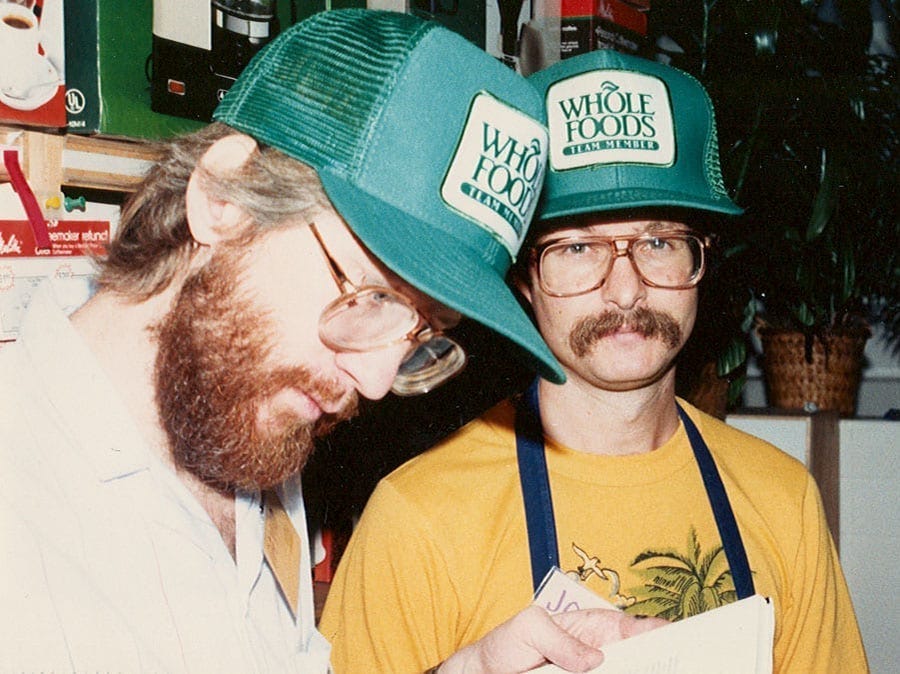
Back then, expensive health food wasn't more than a fad of the privileged. Surely such a store would never grow very big. But Mrs. Gooch’s became so popular that Whole Foods Market Inc. (founded in Austin, TX in 1980) bought it in 1993 in a $56-million stock deal, merging the nation's two biggest natural-food supermarket chains.
In 2017, Amazon acquired Whole Foods for $13.7 billion.
It wasn't Mrs. Gooch’s anymore, but I still liked the store. Yes, it was ridiculously expensive, and I often wondered how honest the “organic” signs really were. But you could find sales if you looked for them, the people that worked there where friendly, and I liked getting a coffee and a vegan donut and sitting outside in the sunshine.
And so, a couple of weeks after I got back from Costa Rica, I found myself applying to Whole Foods stores in Los Angeles and Phoenix.
Anyway, I won’t get hired, I thought.
To my complete surprise, it wasn’t long before I got a call from a team leader at a Phoenix store. He hired me on the phone, assuring me I would be a perfect fit.
I seriously doubted I would be a perfect fit. It was a woke company after all. Even if I did the job adequately (which I had very little self-confidence I could), the minute they found out about my writing I was sure to get fired.
“Can you get here by next weekend?” he asked.
There was no way I could do that. I asked if I could have two weeks and he agreed. He was so nice and encouraging, I actually started feeling excited.
It all happened so fast, I didn’t have time think, Karen, what in the world have you done to yourself?
I mean, it made no sense. I could have been hanging out at Lake Arenal, taking long walks in the jungle, drinking beer at my favorite bar, eating the best pineapple you’ll ever taste, listening to the howling monkeys at night. Instead, I was starting a forty-hour work week. When would I find time to write?
I found a small apartment and moved in. It was brand new inside, there was a nice park where I could run and a gym where I could workout. The only problem was that most of my neighbors smoked weed and cigarettes nonstop and I suspected a drug dealer lived upstairs. But oh well, that’s life in the big city.
I never expected to write what I’m about to say here. My expectation was that I’d be saying how horrible it was to work at Whole Foods. How closed-minded my coworkers were. How absolutely crazy the woke customers drove me. But that’s not what happened. From the first moment I stepped into the store, every person I worked with, from that great guy who hired me to the other team leaders, and all the staff, the baggers, the cashiers, everyone was kind and caring and absolutely NOT woke at all. I was flabbergasted.
Yes, I know this was Arizona, not California, but it was in a liberal part of Phoenix, near to a big hospital that had pushed the mandates. Not only that, but I’d always assumed people who would work at a place like Whole Foods would be on the woke side. I was told this was true of another Whole Foods in another part of Phoenix, so, who knows, maybe God put me there for a reason.
My first month in training, I was overwhelmed and didn’t know how I would ever make a success of the job. There were so many rules to memorize, a hundred little things that confused me that I can’t go into here. I had to memorize maybe 60 codes for fruits and vegetables because for some reason the codes on the produce at Whole Foods rarely match up with what’s registered in the computers. How would I ever do that, I wondered.
The young man who trained me couldn’t have been more patient and kinder. I mean, how had I gotten so lucky? I’m sure it was in large part thanks to him that I didn’t give up. You’ll get it, he assured me. And I did.
I can tell you one thing, I found out that I don’t have dementia. Somehow, by the end of that first month, I had memorized all the most common codes and most of the other ones. The code for bananas will forever be stuck in my head: 4011. If a product is organic, you put a 9 in front.
Apparently, a lot of sports stars, especially in basketball, come into that store but I never recognized any of them. The only celebrity I saw was Charlie Kirk. Haha! He would come in on Sundays and go through my line, buying tons of baby food. He was always really nice but looked very tired, like a new father would. I told him once that I knew who he was, but I said, “I’ll just call you the baby food guy” and he laughed at that. I was happy to make him laugh when he was so obviously exhausted.
Interacting with customers could be hilarious and exasperating. I often worked the early morning shift at 6:45 am. A shoplifter lady would come in early, which was weird because the store wasn’t crowded at that time, but she didn’t care. Everyone knew who she was, and word would go around that she was in the store. She would stuff her bag with produce, maybe hundreds of dollars’ worth, and then just walk out. There was nothing anyone could do about it, and it drove us crazy.
Working at the self-checkout-out line, people were constantly stealing food and not paying for it. When it was crowded, they simply walked out while your back was turned. One of my favorite cashiers, a feisty black woman who I love to this day, wasn’t shy about yelling at them and running after them. She also wasn’t shy about showing her appreciation of the handsome athletes who shopped there. In fact, she would let the entire store know of her approval with loud “oh, he’s fine!”
Many customers told me of their disdain for the Covid era and quite a few insisted to pay with cash. When Whole Foods introduced the “pay with your palm”, it didn’t take off. Even young people would look at the device and say, no way, I’m not doing that. But then, others eagerly submitted, wanting to appear as if they were up on the latest technology.
There was the lady who would come in wearing her mask and her gloves, with a pile of her own bags, lecturing us all that she was from Seattle, and they were the first to get rid of plastic bags and require customers to bring their own bags. The funny thing was that she put all of her produce in small, separate plastic bags, which she then put into the bags she brought from home! She didn’t seem to see the stupidity of her actions.
Then there was the lady who yelled at a very sweet cashier not to put her disgusting, dirty hands all over her produce. She was so rude and spiteful, it was shocking. How she expected the cashier to weigh her produce, I do not know.
Yes, there were some terrible customers. But I found I had compassion for them. They were so scared, so unhappy, so distrustful. It was a sad way to live.
The wonderful customers made up for it. The kind woman who was in my line on my first day of training when I was so nervous, and a horrible man called me an idiot. She promised to always have my back and that she would always come through my line. Sure enough, she always did.
Cashiers get their favorite customers who, even if the line is long, will wait in your line just to say hello. One young father, a recovering addict, would always come in my line in the morning and we’d talk about his latest struggles, and I’d do my best to encourage him. When you’re interacting with a lot of people all day, you don’t know what they’re going through, you don’t know why they lash out or why they are so silent. You don’t know why they hide behind masks and obsessively worry about cleanliness. I always did my best to be kind to everyone. Give them a smile and a good word.
I learned so much working at Whole Foods. One important lesson, which I already knew but the experience really brought it home to me, was just how wrong our preconceived perceptions can be. The only way to really understand something is to live it. Or at second best, learn about it from someone we trust who has lived it.
The work was challenging. It was hard physical labor. Standing 8 hours a day, lifting and packing. Smiling, conversing with customers, trying not to make mistakes. Within the first week, my fingers were raw, and I had to wear finger guards.
I had some disasters with those fingerguards. Like the time one came off and started rolling down the counter. It was a flesh color and looked like a chopped off finger and the customer gasped in horror. I snapped it up quickly and she realized what it was, and we laughed about it. Another time, I realized a fingerguard was missing and I suspected it had ended up in one of my customer’s bags. That must have been an unpleasant surprise.
My back ached all the time and my legs felt like jelly. And I’m in good shape. I gained so much respect for my coworkers, many of whom had been there for years. Some of my coworkers had serious physical ailments. Everyone was in some kind of pain. On the early morning shifts you saw them struggle with the pain as they warmed themselves up and then get right into their jobs, smiling, interacting with customers as best they could, even when those customers were mean and insulting, up until the last minute.
The biggest surprise of all was that almost every single one of my coworkers talked about how they’d seen through the stupidity of the Covid rules and vowed they would never submit again. “I mean, if we all stand together and refuse, what can they do?” I heard them say. Those who found out about my writing were one hundred percent supportive. It was so heartening. I wasn’t going to get fired!
I saw how even though Whole Foods had been taken over by Amazon, it still tried to maintain a proud, unique identity. There was a clear separation between those who worked for Amazon and those who worked for Whole Foods.
I worked for 6 months at Whole Foods. It was hard telling my team leaders that I was quitting. We hugged and cried. In fact, I was so sad to be leaving everyone. They had become like family to me.
My last day was Thanksgiving Day, 2023. It’s the busiest day of the year and I wanted to see what it was like. It was intense. The lines went all the way around the store. I’d learned not to look at the lines, just keep going. All day long, I lifted massive turkeys, rolling them down the counter as best I could. Customers were frantic, running in at the last minute trying to buy things they’d forgotten. Angry when they couldn’t find something they needed. But overall, most people were in good moods and wishing everyone a happy Thanksgiving.
When the day ended, I took off my apron for the last time and threw those blasted finger guards in the trash. Then, I hugged everyone, and we cried and said goodbye. I promised to come back and visit. And in fact, I am doing that in a couple of weeks. I’m really looking forward to it.
I went back to my little apartment, packed everything up and said goodbye to my wonderful neighbor. A teacher whose husband had died the year before, and she had just moved in a few weeks previously. She was one of the few who didn’t smoke continuously, thank goodness. I gave her my potted plants.
That night, I treated myself to a nice hotel before driving back to Los Angeles.
I have a whole new outlook on Whole Foods and a renewed appreciation for those who work in customer service. Working with all those wonderful people gave me a lot of hope. Our strength in America is in The People. Not those billionaires. The hardworking folk who aren’t fooled by the hoopla.
What we see on the news and on social media is being acted out to make us believe everyone is crazy, everyone hates everyone else, nobody can get along, and all hope is gone. That’s not true.
The way we will win is by maintaining our presence in the real world. By continuing to interact with one another in ways that cannot be controlled by the Vast Machine. By holding onto the integrity of our own thoughts, our own ideas, our own ability to think for ourselves and talk to one another about it. Not inside machines but at the market. In a cafe. On an airplane. By opening doors of communication with those we have negative preconceived notions about because we might not agree on everything.
Yes, Amazon has been using Whole Foods to test out surveillance technology like paying with your palm and dystopian stores where customers walk in, registered by AI, buy what they want and just walk out again.
But the good news is that these efforts are failing. Not only does nobody want them, but they don’t work:
The Just Walk Out tech, which was only available at half of the e-commerce giant's Amazon Fresh stores, used a host of cameras and sensors to track what shoppers left the store with. But instead of closing the technological loop with pure automation and AI, the company also had to rely on an army of over 1,000 workers in India, who were acting as remote cashiers.
In other words, Just Walk Out — a highly invasive marketing ploy to get more customers to shop at its stores while actively undercutting the local job market — will be missed by few.
In the Fridman interview, Bezos describes going into space on his Blue Origin spaceship—something Musk has never done, by the way, despite his talk of traveling to Mars:
“Zero gravity feels very natural, I don’t know if that’s because it’s like a return to the womb.”
Whereupon Fridman interrupts jokingly, “It just confirms you’re an alien.” And Bezos erupts in laughter.
I don’t know. Maybe he is an alien. The people I worked with at Whole Foods certainly aren’t. We are all very human. I’m glad to say that Amazon hasn’t been able to completely gobble up Whole Foods. There’s a little bit of Mrs. Gooch in there still. The Vast Machine is still no match for the smile, the humor, the warmth that happens when people interact with one another away from technology, in the real world.




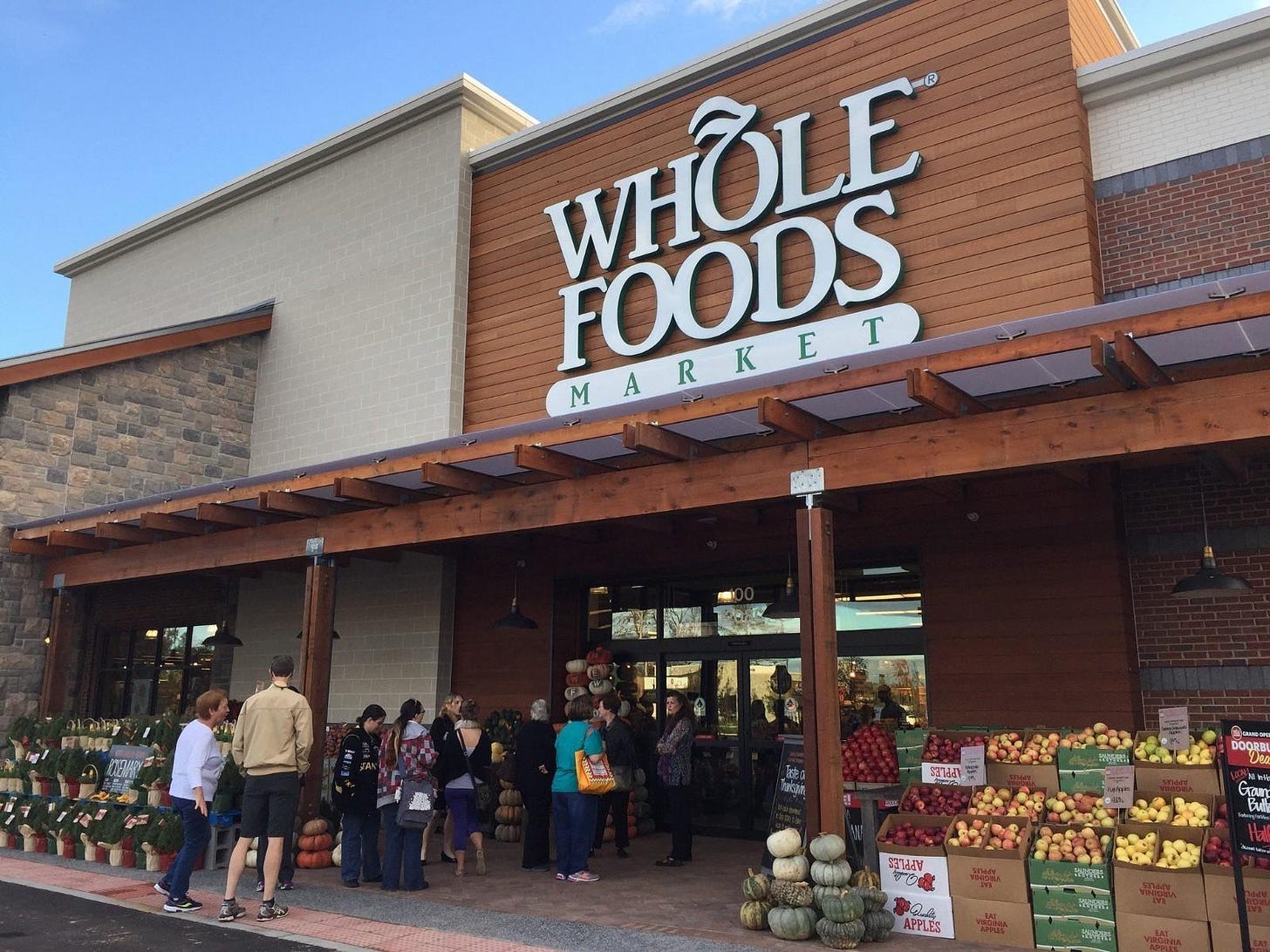
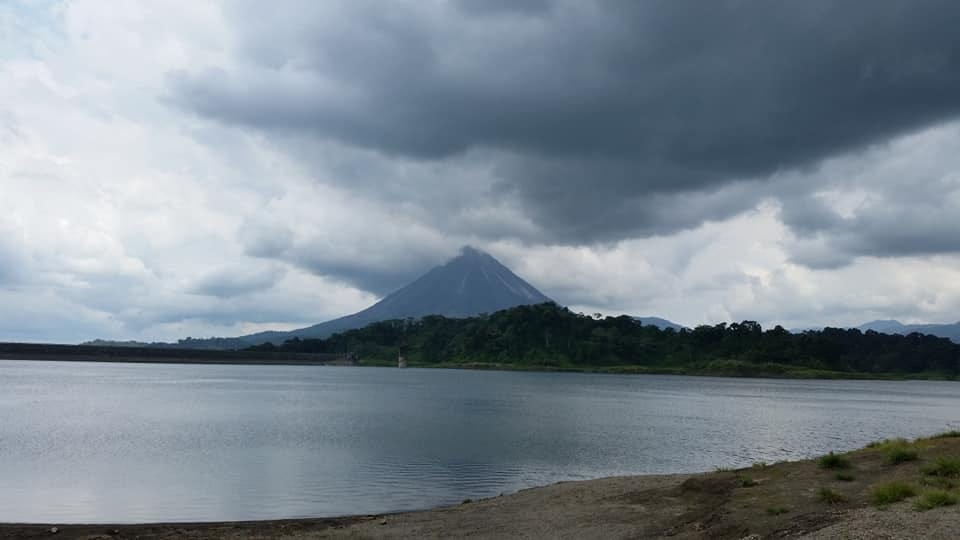
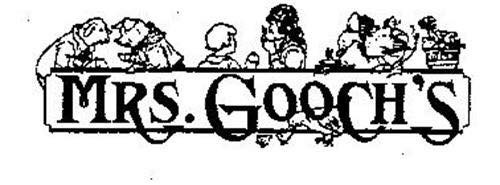
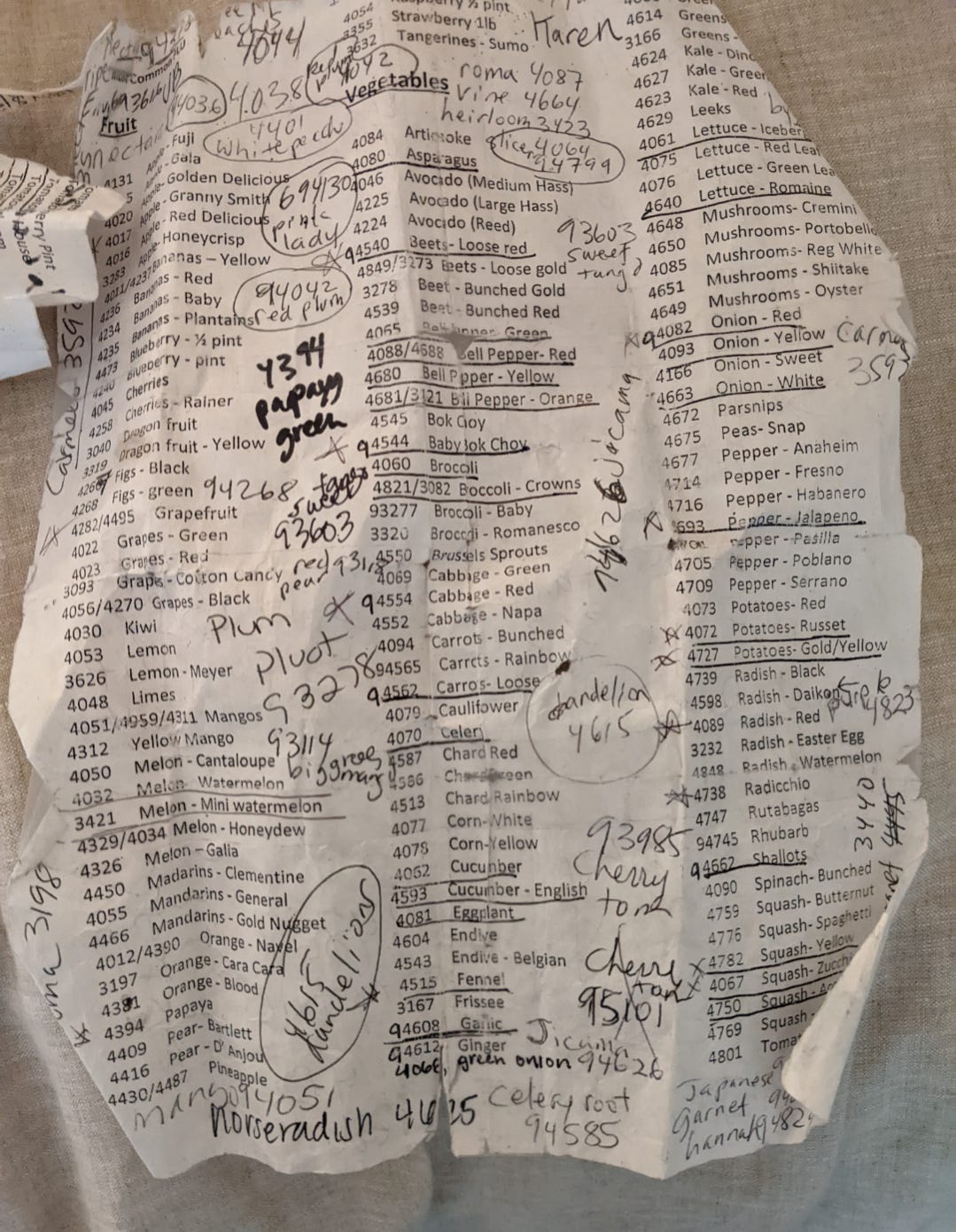
Having owned my own business for many years, I’ve always said everyone, EVERYONE, should be required to work retail for 6 months! Changes how you view customer service, as you point out in your essay. To this day, I’ve been known to pick up a misplaced item in my grocery store and return it to its proper place if I’m going down that isle anyway. I’m the crazy shopper who will fix a shirt that’s about to fall off the hanger. I’m also the customer who will seek out the store manager to pay a compliment when I get good service, every single time. Even though those days are long gone, I’ll never forget what it feels like to be on the other side of the counter!
This was a really thoughtful article and I must admit I needed to hear it. I work in a small, rural credit union and we also experience some unpleasant people from time to time but overall you are absolutely right. We may not know what they are going through and should make an effort to be kind. Most of our members are more like family and I wouldn’t trade them for all the money in the world. There is clearly so much anxiety and fear in the world today. I hope we can try to be a soft place to land for people who are struggling.